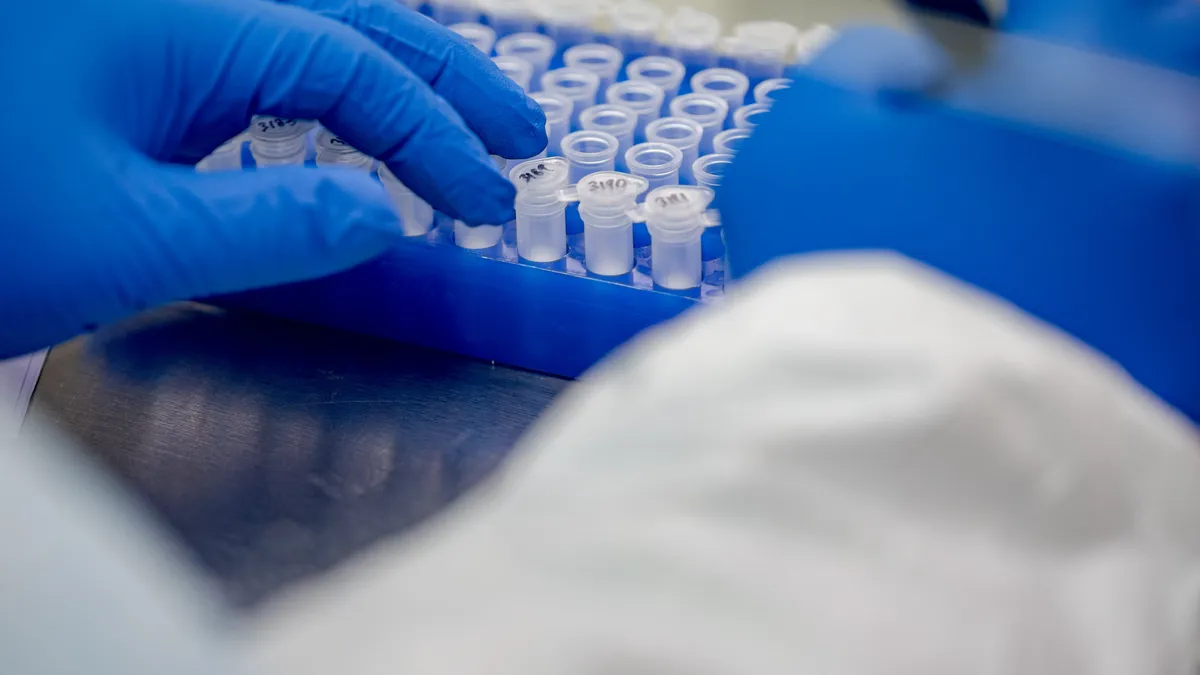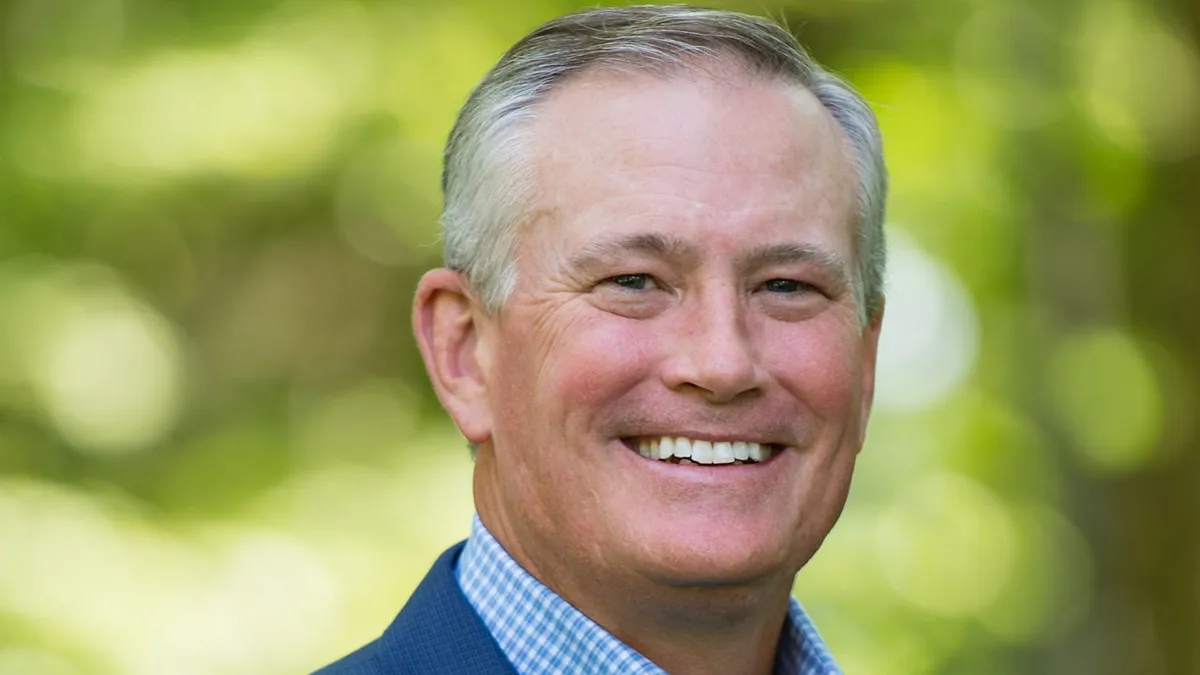Like for so many industries, 2020 was an unprecedented year for clinical laboratories as they faced growing demand for COVID-19 testing across the U.S. as the pandemic raged.
Despite shortages of test supplies, such as reagents, transport media and pipettes, the labs made strides in expanding their testing capacities, ramping up from about 100,000 tests per day in early April to more than 600,000 tests per day at the beginning of 2021.
The American Clinical Laboratory Association, whose members include lab giants Quest Diagnostics and LabCorp, has been at the center of the efforts. ACLA members have collectively performed more than 88 million COVID-19 PCR tests since the pandemic started.
Despite the rollout of vaccines, LabCorp has said that demand for COVID-19 testing in the fourth quarter is on track to top third-quarter levels, while core testing volumes remain stable. Quest last month boosted its 2020 earnings and revenue forecasts, citing "significantly higher" COVID-19 molecular testing volumes than the previous outlook incorporated and relatively steady volumes in its base business. Quest on Feb. 4 will report its fourth quarter and full year 2020 financial results, and LabCorp will follow on Feb. 11 with their release.
Nonetheless, 2021 is shaping up as a challenging year for labs as the U.S. continues to report a record number of coronavirus cases. The surge in demand for testing could lead to ACLA members reaching or exceeding their testing capacities, causing subsequent increases in the average turnaround times for delivering test results.
Starting this month, CMS will reduce payment to labs by 25% if they take longer than two days to return results for high throughput COVID-19 diagnostic tests. So far this year, Quest and LabCorp have been able to keep their respective average wait times for COVID-19 PCR testing to two days or less.
Yet, in July, Quest's test results took seven days or longer while LabCorp reported four- to six-day turnaround times at the height of its delays. Both lab networks say that their respective testing capacities, currently 275,000 (LabCorp) and 215,000 (Quest) molecular tests per day, depend on access to sufficient supplies and equipment.
MedTech Dive spoke with ACLA President Julie Khani about the lobbying group’s policy priorities for the New Year as labs face unprecedented challenges in meeting the need for COVID-19 testing on a national scale.
This interview has been edited for clarity and brevity.
As difficult a year as 2020 was for clinical labs, how do you see the challenges ahead in 2021?
We are now in what many public health experts have predicted will be the darkest days of the global pandemic. We, as laboratories, will certainly do everything that we can to continue to expand on that capacity and to drive innovation.
Even though ACLA members have led the way as a key block for overall testing capacity, we need the innovation of the full diagnostics community. Certainly, PCR testing remains the gold standard for accuracy and reliability. But, all of these other types of tests are important as well such as point-of-care, antigen, and at-home testing. They all have an important role and use. Collectively using all these tests in the right setting at the right time can dramatically expand our testing capacity.
When it comes to testing reimbursement and coverage, where do things currently stand?
We want to make sure that patients have certainty that their COVID-19 tests will be covered. Unfortunately, we do have coverage gaps. There were clear coverage requirements in the Families First Coronavirus Response Act and the CARES Act [requiring comprehensive health plans to cover molecular and serologic COVID-19 testing without cost sharing or prior authorization] but tri-agency guidance [from HHS-Labor-Treasury] that came out last year created coverage gaps, particularly in areas such as return-to-work, return-to-school and surveillance testing.
We think that there is broad bipartisan support for providing the necessary clarifications around what tests should be covered and paid for by commercial insurance, as well as setting up a federal fund to cover other types of testing such as surveillance screening. There has been an increase in coverage denials from health plans for COVID-19 testing. The result of that is it limits and hinders the ability of laboratories to continue to purchase supplies and bring on laboratory technicians and experts to perform the testing.
There is recognition in Congress and from the incoming Biden administration that COVID-19 testing is critically important. We have made recommendations and are advocating for clarification around coverage requirements and will work continue to work with Congress and the Administration to make sure that patients have the certainty that they need.
In July, ACLA joined nearly 50 other healthcare stakeholder groups in sending a letter to congressional leaders requesting dedicated federal funding for COVID-19 testing. What happened with that effort?
It was a letter we did with health plans, as well as insurers and patient groups, to create a federal fund for payment for testing that falls outside of commercial insurance coverage. The areas where we're really seeing the coverage gaps are, again, for things like return-to-work, return-to-school and surveillance testing. That's the type of testing that has fallen through the cracks. It's critically important that we make sure we're managing and understanding virus spread. But, we do not have coverage for those tests.
A CMS policy went into effect this month that would cut Medicare reimbursement rates by 25% for labs that take longer than two days to complete COVID-19 tests. What is the potential impact for ACLA members?
When we look back to last year, one of the most important policy decisions by CMS was to increase the Medicare reimbursement rate to laboratories for high throughput COVID-19 diagnostic tests [from approximately $51 to $100 per test]. The effect of that policy was twofold. First, it allowed some labs who weren’t performing tests to have the necessary resources to bring testing online. And, then, for laboratories that were already providing COVID-19 testing, they were able to expand to other test platforms that are more expensive to operate. So, that increase in Medicare reimbursement was critically important to expanding capacity.
However, what we have now is a disappointing decision by CMS to [effective Jan. 1] to reduce the Medicare pay rate for laboratories that take longer than two days to complete these tests to $75. We believe that policy is shortsighted. While there’s broad agreement about the importance of providing testing quickly, what the policy does not recognize are the challenges that are out of laboratories’ control that have the potential to expand turnaround time. For example, during the surge that we saw last summer, laboratories had limited access to supplies and were not able to hit their testing capacities.
The good news is that there has been continued, significant expansion of capacity by ACLA member labs and others. As we’ve seen the increase in testing demand over the fall and winter, there were still good test result turnaround times. We never went back to the challenging turnaround times of the summer. However, taking away reimbursement and resources from laboratories is not an effective policy solution to expand testing capacity or improve time to result.

















